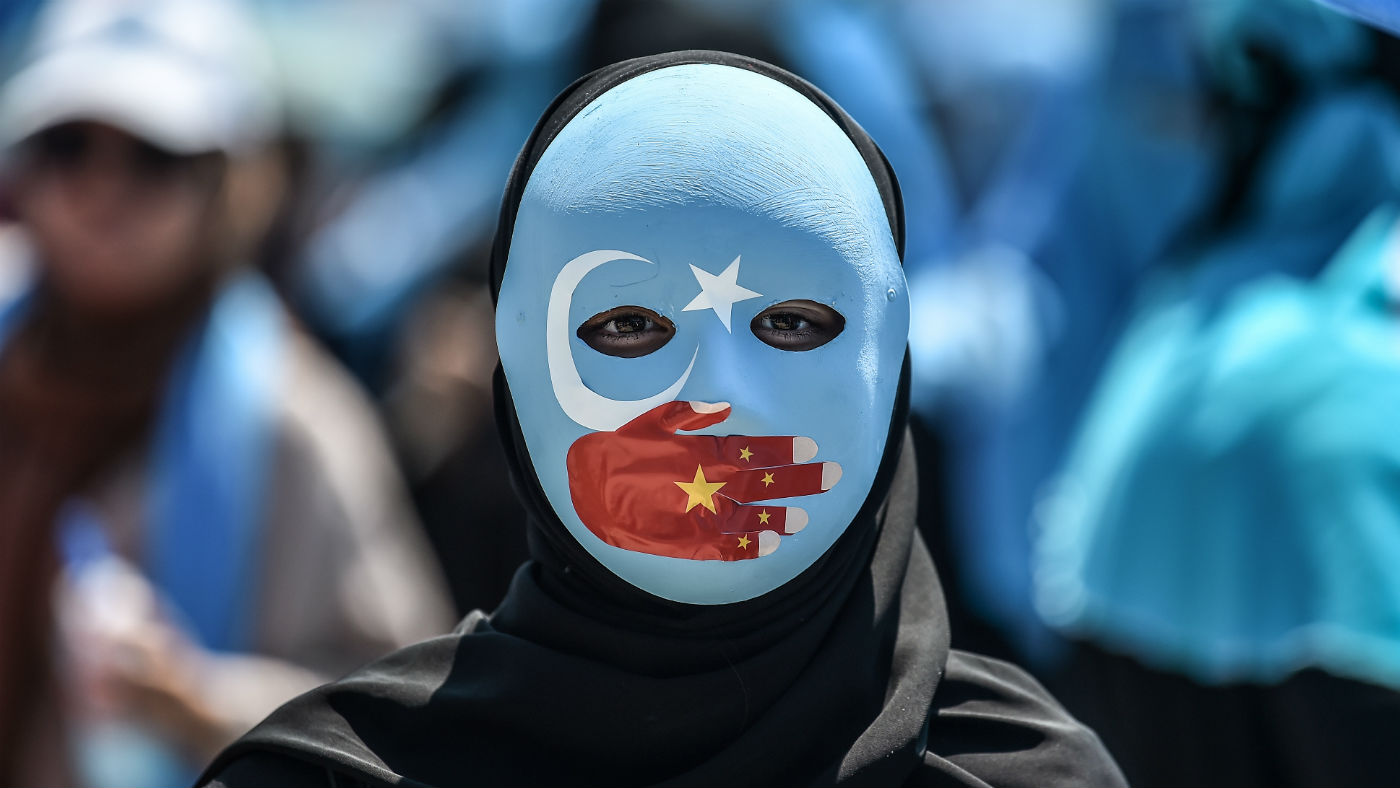China’s secret Muslim internment camps revealed
BBC investigation exposes ‘prison-type structure’ exclusively for Xinjiang’s Muslim minorities

A free daily email with the biggest news stories of the day – and the best features from TheWeek.com
You are now subscribed
Your newsletter sign-up was successful
China appears to have set up a series of secret internment camps used to lock up hundreds of thousands of ethnic Chinese Muslims, whose existence has long been denied by authorities, a new BBC investigation has revealed.
Describing the issue as “one of the most pressing human rights concerns of our age”, the broadcaster claims analysis of satellite imagery has identified many “large prison-type structures that have been built across Xinjiang in the past few years”.
It says they are “exclusively for Xinjiang's Muslim minorities, many of whom do not speak Chinese as their mother tongue”.
The Week
Escape your echo chamber. Get the facts behind the news, plus analysis from multiple perspectives.

Sign up for The Week's Free Newsletters
From our morning news briefing to a weekly Good News Newsletter, get the best of The Week delivered directly to your inbox.
From our morning news briefing to a weekly Good News Newsletter, get the best of The Week delivered directly to your inbox.
One facility outside Dabancheng, an hour's drive from the provincial capital, Urumqi, has an estimated capacity of 130,000 people, according to GMV, a multinational aerospace company with experience of monitoring infrastructure from space.
China’s treatment of ethnic Uighur and other Turkic Muslim people in the northeast Xinjiang region of the country has come under growing international scrutiny after reports of targeted abuse and systematic detention began to emerge.
A Reuters report in August claimed authorities have “dramatically stepped up security and surveillance” in the region, introducing “police checkpoints, reeducation centres and mass DNA collection” over the past two years.
Last month, a UN human rights panel accused China of holding Uighurs without charge or trial in “something resembling a massive internment camp, shrouded in secrecy”, where abuse and torture is alleged to be commonplace.
A free daily email with the biggest news stories of the day – and the best features from TheWeek.com
Beijing has repeatedly denied the allegations, saying people willingly attend special “vocational schools” which combat “terrorism and religious extremism”.
Uighurs have a long history of rebellion and resistance against Chinese rule, dating back centuries, but the huge amount of mineral wealth in the region, particularly in the form of oil and gas, has brought a lot of investment, rapid economic growth and a wave of Han Chinese settlers from the east.
This has driven increasing resentment among the local Uighur population towards Beijing, leading to a spate of terrorist attacks over the past decade which have prompted a crackdown by Chinese authorities.
New legal penalties have been introduced to curtail Islamic identity and practice, while there has been a mass recall of passports to stop many Uighurs leaving the country.
Of the roughly ten million Uighurs who remain in Xinjiang, the UN claims more than one million have been detained in camps, most without trial, while as many as two million have been forced to submit to re-education and indoctrination.
China has consistently denied that it is locking up Muslims without trial, “but a euphemism for the camps has long existed – education”, says the BBC.
Almost certainly as a response to the mounting international criticism, the authorities have begun to double down on this description, with a full-on propaganda drive.
However, with evidence mounting that its so-called education camps are far more sinister than they seem, the regime could soon find itself having to answer difficult questions.